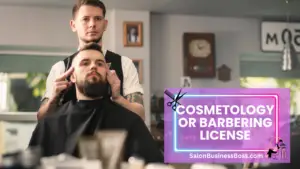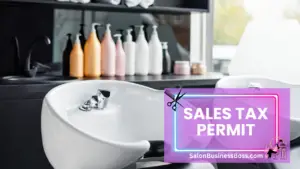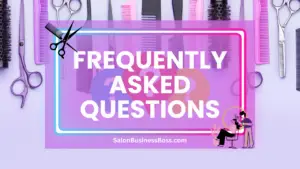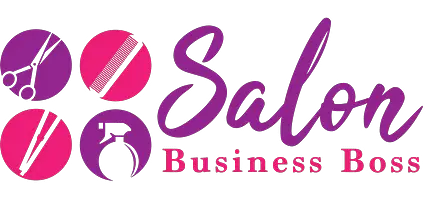Opening a salon can be an exciting venture for aspiring entrepreneurs in the beauty and grooming industry. However, navigating the legal requirements and obtaining the necessary licenses and permits can be a daunting task. In this article, we will provide a detailed explanation of the licenses and permits you need to open a salon.
Licenses you need to open a salon include a business license, salon license, cosmetology or barbering licenses for staff, health department permits, and building permits. Ensure you have sales tax permits, music licensing, and adequate insurance coverage. Understanding and obtaining the right licenses will help you create a legally compliant and safe salon environment for your clients and staff.
1. Business License:
A business license is the foundational requirement for legally operating a salon or any other business. This essential document is typically issued by the city or county government where your salon is located. Its primary purpose is to register your salon with the local authorities and ensure compliance with relevant zoning laws and regulations.
Obtaining a business license involves submitting the necessary paperwork and paying the required fees. The specific requirements and fees may vary depending on your location and the type of salon you plan to open. It’s essential to research the specific regulations in your area and consult with your local government office or Small Business Administration (SBA) for guidance.
Securing a valid business license not only keeps your salon on the right side of the law but also provides credibility and legitimacy to your business. It reassures customers that you are a legitimate and responsible establishment adhering to local rules and standards.
2. Salon License:
In addition to the general business license, many states require a specific salon license to operate a beauty salon. This specialized license focuses on ensuring that your salon complies with health and safety regulations that are unique to the beauty and grooming industry.
To obtain a salon license, you will likely need to demonstrate proof of professional training, qualifications, and certifications for both you as the owner and your staff members. The licensing process may involve inspections of the salon’s premises to assess compliance with sanitation protocols, proper equipment usage, and adherence to fire safety measures.
The salon license may also specify the maximum number of chairs or stations allowed in the salon, ensuring that your establishment can accommodate clients safely and comfortably. Having a valid salon license not only keeps your business legally compliant but also shows your commitment to providing a safe and hygienic environment for your clients and staff.
Before proceeding with the licensing process, make sure to thoroughly research the specific requirements in your state or locality and prepare all necessary documentation to streamline the application process. Adhering to the appropriate licensing procedures sets a strong foundation for your salon’s success and establishes trust with your clients.
3. Cosmetology or Barbering License:

For salon owners intending to offer hairstyling, hair cutting, and related services, having licensed cosmetologists or barbers on staff is a non-negotiable requirement. In most states, individuals pursuing careers in cosmetology or barbering must pass a state-issued licensing exam to demonstrate their competency in providing these services.
The cosmetology or barbering license ensures that your staff members have received the necessary training and education to perform their duties professionally and safely. These licenses cover a wide range of services, including haircuts, styling, coloring, chemical treatments, and more. Moreover, licensed professionals are better equipped to address various hair and scalp conditions and offer expert advice to clients.
As a salon owner, it is your responsibility to ensure that your staff’s licenses are up-to-date and prominently displayed in your salon. Displaying the licenses instills confidence in your clients, indicating that they are in the hands of skilled and certified professionals. Keep in mind that the specific requirements for obtaining and renewing cosmetology or barbering licenses may vary from state to state, so stay informed about the regulations in your area.
Read more about: Beauty services that don’t require a license
4. Health Department Permits:
Maintaining a clean and safe environment within your salon is paramount to building a positive reputation and ensuring the well-being of both your clients and staff. To uphold these standards, many states require salons to obtain health department permits.
Health department permits typically involve regular inspections of the salon premises to assess compliance with health and safety guidelines. Inspectors look for proper sanitation practices, including the sterilization of tools and equipment, appropriate disposal of hazardous waste, and overall cleanliness of the salon.
By obtaining a health department permit, your salon demonstrates its commitment to providing a hygienic environment for clients to enjoy their services without any health risks. Adherence to these standards not only protects the health of your clients but also safeguards your business from potential legal liabilities.
It is essential to familiarize yourself with the specific requirements for health department permits in your state and maintain a rigorous cleaning and sanitation routine in your salon. Regular inspections and compliance with health and safety regulations will reinforce your salon’s reputation as a place of both beauty and safety.
5. Building and Zoning Permits:
Before launching your salon, it is crucial to navigate the complexities of building and zoning regulations. Building permits may be necessary if you plan to make renovations, construct new structures, or undertake significant changes to the salon’s layout. These permits ensure that your salon meets safety standards and adheres to building codes, safeguarding both clients and staff.
Zoning permits, on the other hand, determine whether the location you have chosen is zoned for commercial use and if a salon business is permitted in that area. Zoning regulations vary depending on the specific district, and it’s essential to verify that your intended business activity aligns with the zoning requirements.
Failure to comply with building and zoning permits can result in severe consequences, such as fines or even the forced closure of your salon. Therefore, it is crucial to work closely with your local government or zoning authority to ensure that your salon meets all necessary requirements and obtains the appropriate permits.
By addressing building and zoning permits early in the planning process, you can avoid potential roadblocks and ensure that your salon operates legally and in a location that is both suitable and authorized for commercial purposes.
6. Signage Permits:
If you intend to attract customers through well-designed signs or advertisements outside your salon, you may need to secure signage permits from local authorities. These permits regulate various aspects of signage, including size, design, and placement, to maintain the visual aesthetics of the neighborhood and prevent excessive clutter.
Signage permits aim to strike a balance between promoting businesses and preserving the overall character of the area. They ensure that your salon’s signs do not obstruct pedestrian traffic, create visual distractions, or clash with the local architectural style.
It is essential to thoroughly review the guidelines specified in the signage permits and ensure that your signs comply with all requirements. Failure to obtain the necessary permits or violating the guidelines can result in penalties and the removal of non-compliant signs.
Working with local authorities and understanding the regulations in your area will help you design visually appealing and effective signs that adhere to the city’s guidelines. Properly permitted signage will enhance your salon’s visibility and attract clients while contributing positively to the overall ambiance of the community.
7. Sales Tax Permit:

As a salon owner, offering beauty products like hair care items, skincare products, and beauty accessories is a common practice. However, most states require you to obtain a sales tax permit from the state’s department of revenue. This permit allows you to legally collect sales tax from your customers and remit it to the state.
The sales tax permit ensures that your salon is authorized to charge and collect sales tax on taxable items sold within the state’s jurisdiction. It is essential to comply with this requirement as failure to do so can result in penalties and legal issues. Moreover, collecting sales tax without the necessary permit is illegal and may harm your salon’s reputation.
When obtaining a sales tax permit, you will need to provide details about your business, the products you sell, and other relevant information. The state’s department of revenue will then issue your permit, allowing you to operate your salon business in compliance with tax regulations.
Read more about: Must-Haves for Starting Your Own Salon Business
8. Music Licensing:
Creating a welcoming atmosphere in your salon often involves playing music to set the right ambiance for clients. However, playing copyrighted music without proper licensing can lead to copyright infringement issues. To avoid legal trouble and support the artists, obtaining music licensing is essential.
Music licensing grants you the necessary permissions to play copyrighted music in your salon. By obtaining licensing, you compensate the artists and copyright owners for the use of their work. There are several music licensing organizations, such as BMI (Broadcast Music, Inc.) and ASCAP (American Society of Composers, Authors, and Publishers), that you can contact to acquire the appropriate licenses.
Ensure that your music licensing is up-to-date and covers all the music played in your salon. Failure to secure proper licensing could lead to costly fines and potential lawsuits. By adhering to music licensing regulations, you create a positive environment for clients without compromising on legal compliance.
9. Insurance Coverage:
While not a license or permit, having comprehensive insurance coverage is a crucial aspect of protecting your salon business from unexpected events and liabilities. General liability insurance is vital, as it covers claims related to personal injuries or property damage that may occur on your salon premises. It safeguards both your clients and your business in the event of accidents or incidents.
Professional liability insurance, also known as errors and omissions (E&O) insurance, is equally important. This type of insurance protects your salon from claims arising due to negligence or mistakes in the services provided by your staff. Professional liability insurance provides financial security and reassurance to your clients that you stand behind the quality of your services.
Insurance coverage is a safety net that every salon owner should have in place. It offers peace of mind and ensures that your business is well-protected from potential risks and legal claims. Consult with an insurance provider to determine the most appropriate coverage for your salon business.
Conclusion
Opening a salon requires careful attention to legal requirements and compliance with various licenses and permits. By obtaining the necessary licenses and permits, you can operate your salon smoothly while maintaining a safe and compliant business environment. It is essential to research the specific regulations in your state or locality and consult with legal and business experts to ensure that you have all the required licenses in place before opening your salon. With the proper paperwork and a focus on compliance, your salon business can thrive and attract satisfied clients within the bounds of the law.
Frequently Asked Questions

1. What is the importance of health department permits for a salon?
Health department permits ensure that your salon meets sanitation standards and adheres to health and safety guidelines, creating a clean and safe environment for clients and staff.
2. How do I obtain building and zoning permits for my salon?
Building permits are required for renovations or significant changes to the salon’s structure, while zoning permits determine if your location is suitable for a salon. Check with your local government for the application process.
3. Are there specific regulations for signage in a salon?
Yes, you may need signage permits to display signs or advertisements outside your salon. These permits regulate the size, design, and placement of signs to maintain the aesthetic appeal of the neighborhood.
To learn more on how to start you own salon checkout my startup documents here.
Please note that the contents of this blog are for informational and entertainment purposes only and should not be construed as legal advice. Any action taken based on the information provided in this blog is solely at your own risk. Additionally, all images used in this blog are generated under the CC0 license of Creative Commons, which means they are free to use for any purpose without attribution.

About the author. Entrepreneur and Salon Business Fan.
Hi! I am Shawn and I am a happy individual who happens to be an entrepreneur. I have owned several types of businesses in my life from a coffee shop to an import and export business to an online review business plus a few more and now I create online salon business resources for those interested in starting new ventures. It’s demanding work but I love it. I do it for those passionate about their business and their goals. That’s why when I meet a salon business owner, I see myself. I know how hard the struggle is to retain clients, find good employees and keep the business growing all while trying to stay competitive.
That’s why I created Salon Business Boss: I want to help salon business owners like you build a thriving business that brings you endless joy and supports your ideal lifestyle.

